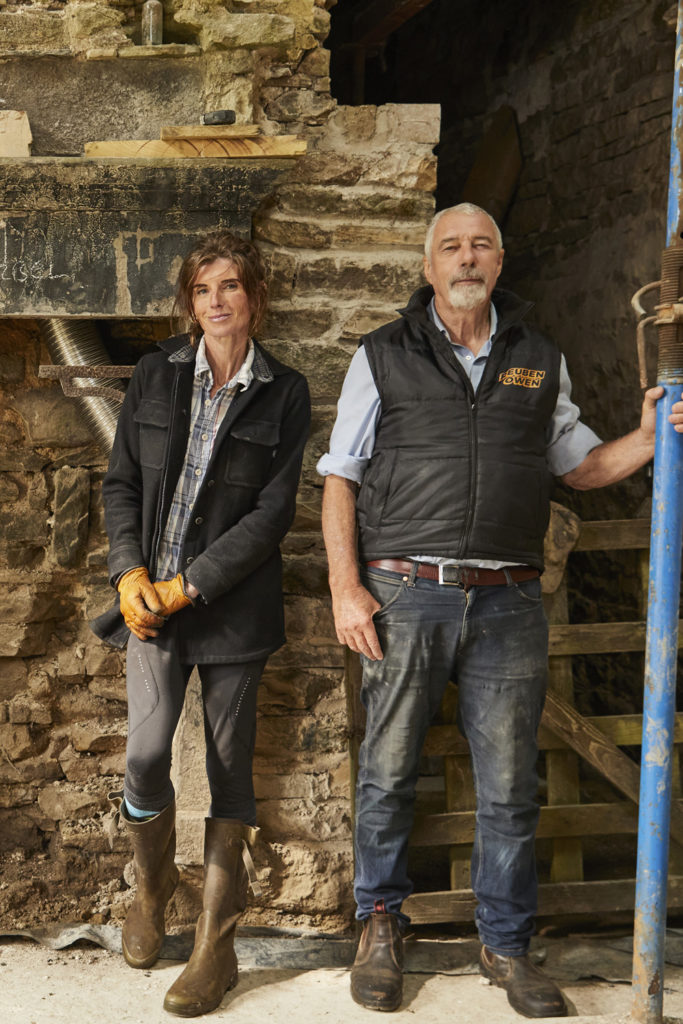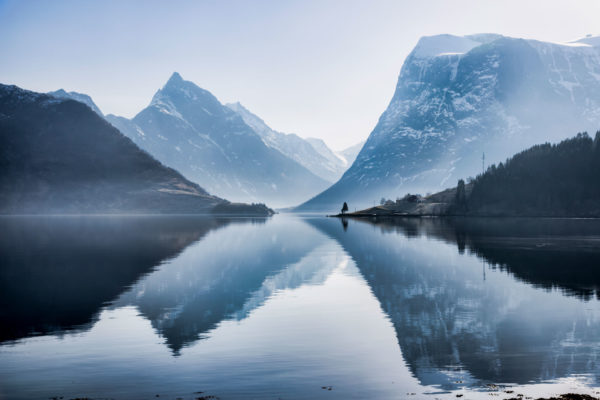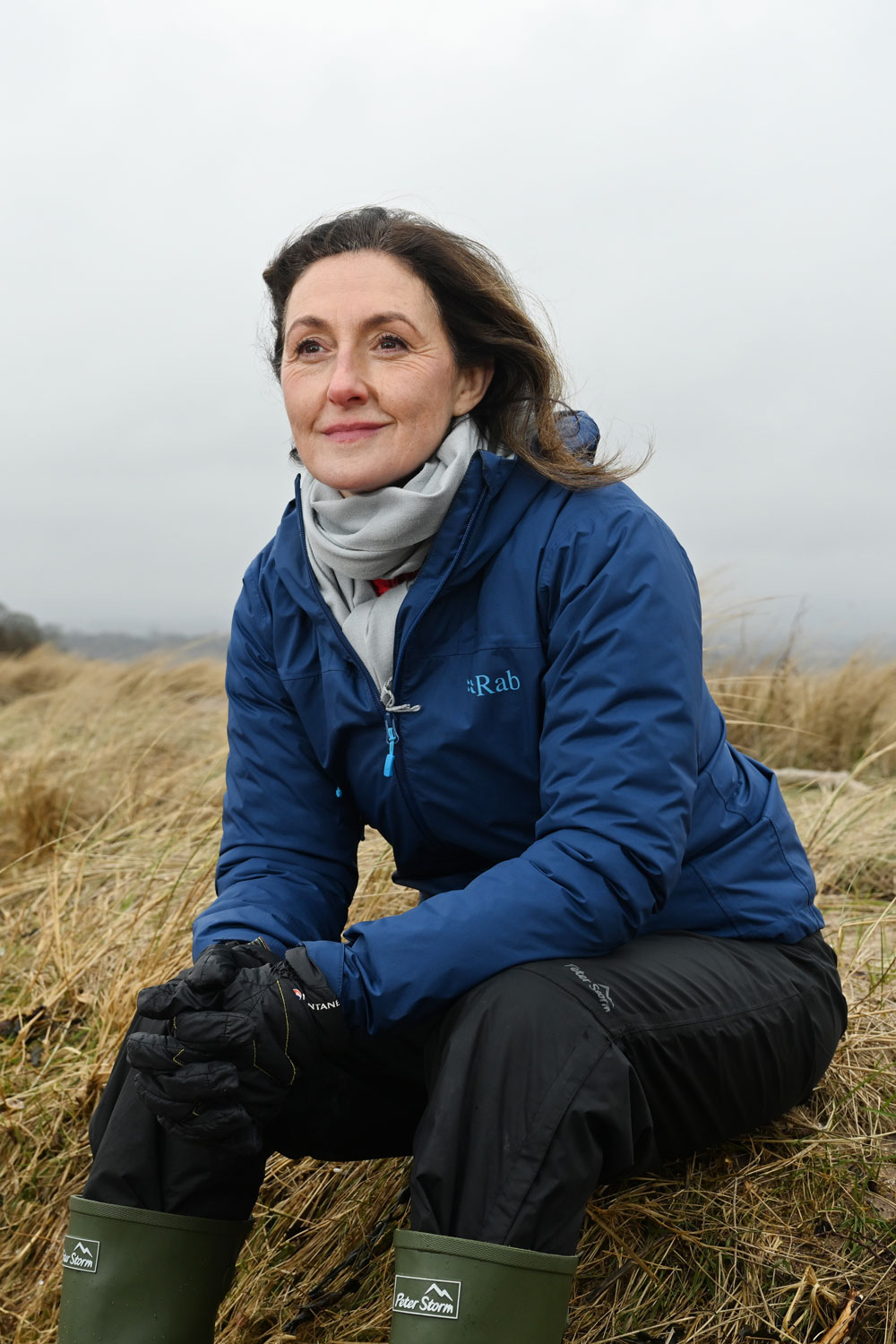
WWF’s CEO Tanya Steele On How We Can Save The Planet
By
6 months ago
We delve into the WWF's Living Planet Report
After seeing first-hand the impact the environment has on people’s daily lives, particularly in communities which are less resilient to environmental pressures, Tanya Steele (CBE) joined WWF (World Wild Fund for Nature) as its first female CEO in early 2017. Since then she has successfully led the delivery of an ambitious strategy to tackle the catastrophic decline in species and habitats across the world. As a critical force for driving change, WWF has just released the 15th edition of its ‘Living Planet Report’ discussing the health of our planet and its species. We speak to Tanya Steele, about the report’s shocking findings, her love of nature and her views on living a conscious life.
Interview with WWF CEO Tanya Steele
The 15th edition of WWF’s Living Planet Report has just been released. Could you explain what this is?
The Living Planet Report is WWF’s flagship report that we publish every two years. It serves as a health check on the planet and our natural world. It includes a headline statistic that shows the average decline of wildlife population sizes around the world – a key indicator of the health of our planet’s wildlife and their habitats.
What was the focus of this year’s Living Planet Report?
This year’s Living Planet Report is the most shocking yet, showing an average global decline of 73 percent in wildlife populations in the past 50 years. You don’t have to look far to see that nature is in trouble. This summer we’ve seen ominous signs here in the UK – hardly any wasps, which you might think is not a bad thing for your picnic but is part of a worrying wider decline in the insects that pollinate our crops and other plants; a big drop in the numbers of butterflies. Meanwhile in South America, huge swathes of the Amazon are on fire.
The report warns that the world is fast approaching what we call ‘tipping points’ that once we go past, will be almost impossible to reverse – like tipping a glass until it topples and the water is lost. These include the potential collapse of the Amazon rainforest, which risks degrading into scrub, and the fast melting of polar ice. Both of these iconic places help regulate the planet’s climate and sustain a wide range of life. Passing these tipping points would be dangerous and irreversible and cause major threats to both humans and wildlife.
The report reviews global progress towards goals that are vital for avoiding these tipping points and it calls for urgent action to change the way we grow our food, generate energy and run our financial systems to ensure nature is protected and restored.
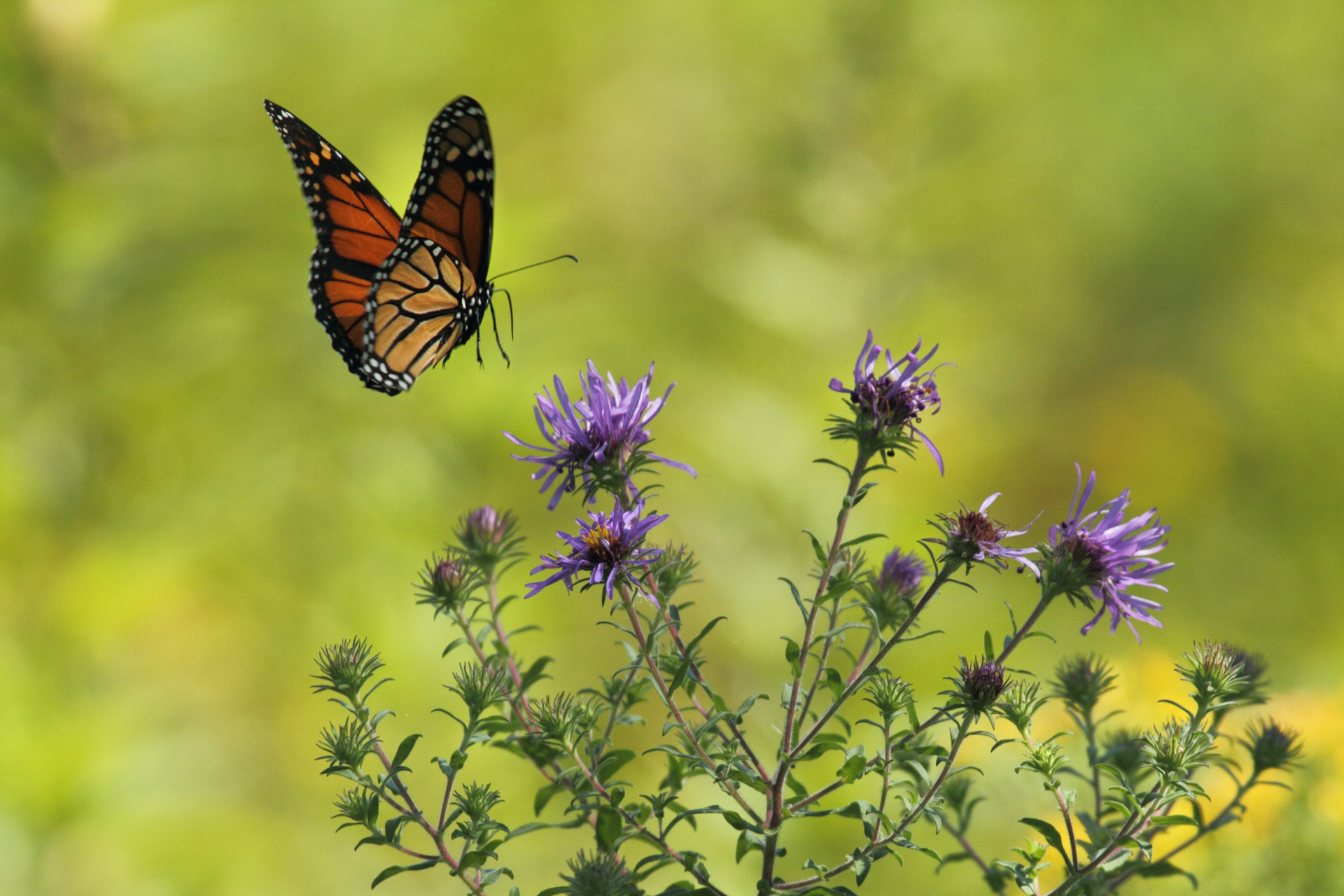
What were some of the most thought provoking and shocking findings from this year’s Report?
The report is a wake up call. The need to protect and restore nature has never been more urgent. But this isn’t just a sad story about wildlife – our natural world is in serious trouble and this could have profound consequences for us too. The overall 73 percent decline in average monitored wildlife populations is the most shocking headline, but as you dig deeper the report also reveals that wildlife populations in Latin America and the Caribbean have seen even more extreme average declines of 95 percent. Many countries in Europe and North America show less severe declines. This is due to much of their wildlife having been destroyed before the 1970 date from which the Living Planet Report data begins. And having depleted their once-rich wildlife, these countries are now driving nature loss in other parts of the world, for example by importing livestock feed grown on formerly wild areas such as the Amazon rainforest.
What action would you like to see the UK Government take to address your most pressing concerns?
As a G7 nation we can play an important role. The global goals the planet has set itself for a more resilient future – such as the Paris Climate Agreement, the Global Biodiversity Framework and the Sustainable Development Goals – will help put us on the path to a healthier, thriving world. Those goals have been set for 2030 for a reason. We need to see action and progress towards meeting them, including from the Government here in the UK. It is no exaggeration when the report says that ‘the next five years will determine the future of life on Earth’.
Closer to home, we’re calling on the UK government to remove deforestation from our supply chains so that UK consumers are no longer driving the destruction of forests like the Amazon through the products we buy. That’s why WWF is calling for a new law to bring our world back to life. We need to support the wellbeing of generations to come with a secure future of clean water, clean air, healthy food, a stable climate and a thriving natural world. The ‘Living Planet Act’ would be a simple solution to secure healthy, affordable food for everyone, restore nature, and stabilise our climate – a comprehensive package for a better future. It’s the cure that will keep our planet and loved ones safe for generations to come.
What are some of the ways that WWF has been able to make a difference that you are most proud of?
Despite many challenges, we continue to use our influence as an organisation and our science to keep the threats from climate change and nature’s decline front and centre in the minds of decision-makers and the public, and we have had some brilliant successes as a result. There are conservation bright spots thanks to the work of WWF and local communities, such as tiger numbers in Nepal and mountain gorillas in East Africa both increasing, and a global pledge to protect river dolphins, as well as impactful success stories closer to home such as the reintroduction of oysters to the Firth of Forth in Scotland for the first time in 100 years.
We worked with the Government to announce at the global climate summit, COP28, last year that it would incorporate new legislation in 2024 to ensure the products on UK supermarket shelves aren’t driving illegal deforestation. In June this year, WWF supporters and staff joined the 60,000 people who marched through the streets of London to Westminster, demanding urgent action for the restoration of the natural world.
Why is nature so important?
Nature gives us so much. From the food we eat to the air we breathe and the water we drink, it keeps us healthy and thriving. So as our planet’s health fails, so does our own. This autumn and into next year, we are focusing on encouraging the UK public to get out in nature for their own wellbeing. We know that spending time in nature not only benefits our mental wellbeing but also inspires people to protect and restore our natural world in return. With the UK facing a mental health crisis, WWF is prescribing a daily dose of nature to the nation to support, inspire and educate us about the restorative powers of the natural world – just 20 minutes a day is enough to improve our mental wellbeing.
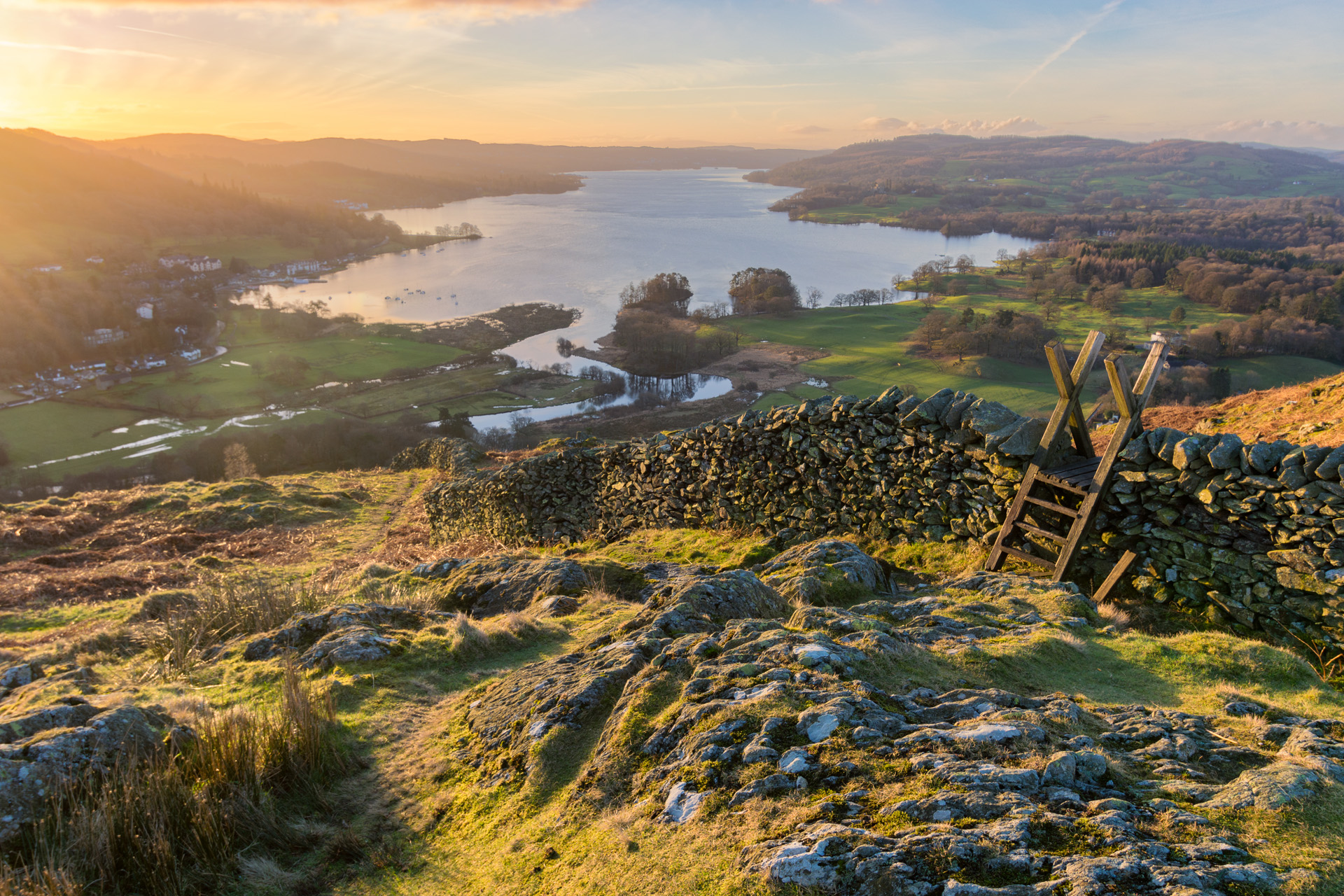
Lake Windermere
What are some of your favourite nature spots and why?
I’ve been fortunate to travel widely with my job – and have been hugely inspired by the great rainforests of the Amazon, teeming with life, and the grasslands of east Africa, home to some of the most spectacular concentrations of wild animals remaining on our planet. African elephants are a personal favourite species – so beautiful and with such rich bonds within their family groups. And of course their grazing and foraging shapes the very landscapes they live in. But you don’t have to travel across the world to be inspired by nature – I love visiting the Lake District, where I have family, and closer to home walking on Hampstead Heath in London, which is home to a surprising variety of birds, insects and other wildlife.
Who is your own green hero?
Well it might be an answer that many people would give but it’s no less true for that: I have to say Sir David Attenborough. He has been involved with WWF since we were founded in 1961 and remains an ambassador now. He is an inspiration to everyone who cares about the natural world – including me and my colleagues at WWF. I think it’s safe to say that no-one in human history has opened the eyes of more people to the wonders of nature. But David has also sounded clear warnings about the damage we are doing to our natural world, and the need to change course urgently – including through recent documentary series on which we have been privileged to work alongside him, such as Our Planet and Wild Isles.
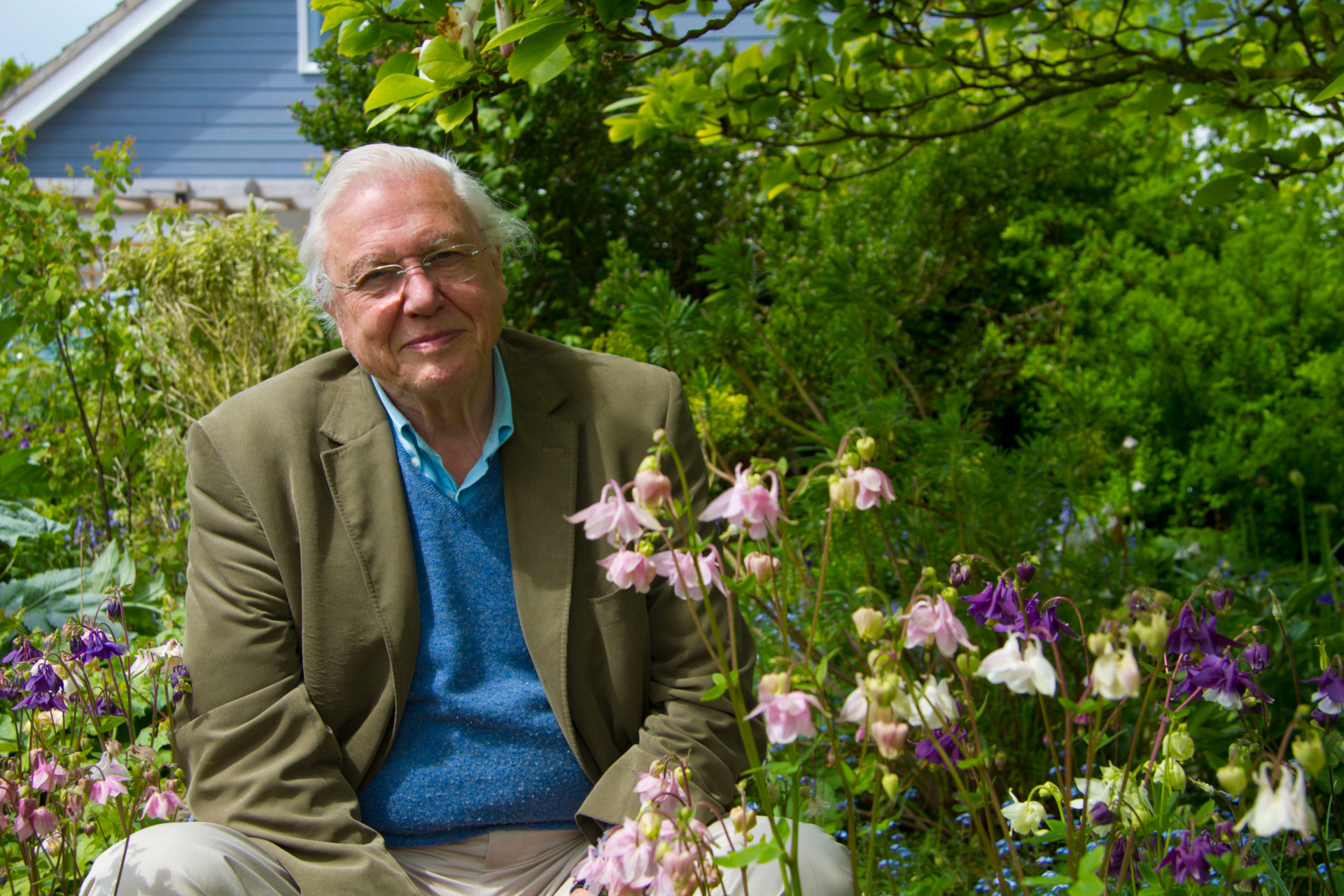
(c) BBC
What are your top tips for living sustainably?
One of the easiest ways to make changes at home is to think about what you eat and where your food is coming from. The Living Planet Report discusses how the way we produce food is such a major driver of nature loss. One of the biggest causes of forest loss is the expansion of agricultural land for animal feed production, such as soy. And producing meat creates vastly more carbon dioxide than plants such as vegetables, grains and legumes.
Moving away from a meat-dominated diet towards a more plant-based diet can definitely lower your impact on the environment. When shopping for food, look for UK seasonal produce to reduce food miles and search for sustainability certifications such as RSPO-certified palm oil and MSC-certified seafood.
But in general, just getting outside as regularly as possible and exploring and engaging with the nature we have right here on our doorstep – be it your local park or patch of countryside – is a brilliant way to reconnect, enjoy its restorative benefits and, ultimately, inspire us to protect it. Visit wwf.org.uk to learn more about how you can get your daily dose of nature.
Do you feel a sustainable future is possible now?
The science is clear. Over the next five years we must avoid dangerous climate change, halt and reverse dramatic nature loss and produce healthy, affordable food for everyone. It’s one of the biggest challenges we’ve ever faced.
But we are not yet past the point of no return and there is hope. We know we already have the solutions – we know how we can stabilise our climate, restore nature and produce healthy, affordable food for everyone. We just need ambitious, large-scale action to make it a reality. The Living Planet Act would make sure all future UK governments had to take joined-up action to reduce emissions, restore nature and make sure that everyone has access to healthy food. It would help to protect and restore nature and support the wellbeing of generations to come.
And what are the facts that make you fearful?
That 73 percent decline in the average size of monitored vertebrate wildlife populations within one lifetime that the Living Planet Report mentions really is shocking. We should be shocked, but we shouldn’t be surprised, given the lack of serious action to address the causes of nature’s decline. And focusing closer to home, the fact that the UK is in the bottom 10 percent of nature depleted countries in the world is also shocking to many when we think of our ‘green and pleasant land’. In the UK we’ve lost 97 percent of our wildflower meadows since the 1930s and 38 million birds have vanished from our skies in the past 50 years – once-common species like sparrows and starlings are now unfamiliar to many people. However, while these data points paint a concerning picture, they also offer us an opportunity. They are the warnings that we need to intervene and act with far greater urgency.
Should we be green shaming the brands/companies who are doing nothing to change their ways? What advice can you give to other organisations & businesses who are wanting to do better?
Tackling the climate and nature crisis needs everyone, from all sectors of society, to play their part in bringing our world back to life. The private sector is hugely influential and it’s impossible for us to address any of the big issues facing our world without business on board. Today’s environmental emergency affects businesses too – from the impacts of climate change, to dwindling supplies of natural resources, to the reputational damage of being associated with wildlife extinctions and the destruction of our natural world. You can’t build a sustainable and prosperous future on collapsing foundations.
A growing number of companies – though still not enough – are demonstrating that it’s possible to use their business to make a positive contribution to society and our environment. In fact, it can be a business opportunity – a way of adding value to their brand, engaging consumers and employees and building trust while avoiding risks and securing their long-term viability.
Three things we should all, as individuals, be doing to help in the climate change fight?
- Speak up: write to your MPs and other representatives, sign petitions and hold our leaders to account on goals and promises.
- Reduce your impact: measure your footprint using the WWF footprint calculator app to see what impact you’re having on the world and how to reduce it.
- Eat for our world: adopt a planet-friendly diet by eating more plants, making sustainable shopping choices and cutting food waste where possible.



